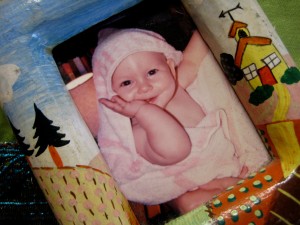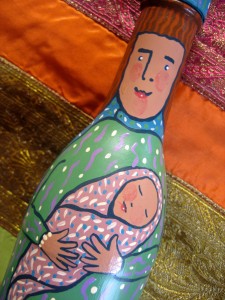
– Photo by Jan Ketchel
The truth is, the child self is older than the adult self. We were all children first. Actually, to advance, the child self had to stay behind so that the adult self could mature.
The child self, who sought the safety and fulfillment of its fundamental survival, who sought unconditional love and acceptance, who sought the pure play of innocence and discovery, had to shut down, hold in, and separate from the seeds of its budding adult self that it launched, while it sank into dormancy, waiting for the day the adult might turn around and rediscover its roots in the purity and innocence of childhood again.
Often, that child self was neglected and traumatized and it secretly bears the weight and torment of its early experiences. Voluntarily, it broke away from consciousness, hiding in the dark so as not to disturb the forward movement of the adult self. Its only hope of redemption, its hidden contract, was that in the triggered moments of adulthood the adult self would come in search of the traumatized child self and lead it to the light of day and help it to become unburdened of its horror stories, terrors, and confusions.
Only the adult self can become the true parent self to its lost child self. Only the adult self can find its forgotten self. Only the adult self can stand with its younger self and bear witness to the full truth of its younger experiences and, in so doing, put them to rest. Only the adult self can free its imprisoned child self and merge its innocence into the play of adult life.
Too often, adults forget their childhoods and only know they don’t want to revisit that horrid period of life. As the child stays cloistered, however, life in adulthood is experienced as barren and lacking, and the adult self seeks to compensate for the lack of joy and freedom by indulging in the myriad of addictions available in adult life.
At other times, adults become parents and inadvertently project their forsaken child selves onto their own children, who they serve as if they were princes and princesses, unable to limit, so deep is the pain of their own forsaken inner children. Sometimes the inner children are projected onto pets or other helpless creatures of the world, whom the adult feels compulsively bound to nurture and save.

– Photo by Jan Ketchel
If we come to the place of discovery of our own inner child, perhaps at first in dreams where our child tells us its secrets, we may be so appalled by the lack of care given and the hardships endured that we feel bound to serve and protect this wounded child at all costs. Young children do need parents to cater to their needs; its the core of survival. But they do also need parents that will listen to the truth, the whole truth of their experiences, and help them sort out the confusion of who is to blame and why things actually happened. Children may need to be helped to release their anger and sadness, and receive appropriate love and support.
But the truth is, our younger child self is much older than we are and may, in some way, be much wiser and more mature as well. After all, that warrior self already endured pain, suffering, neglect, perhaps even abuse and torture, things the adult self finds difficult to endure much less believe.
The child self does not need to be catered to or compensated for all that it had endured or lost. What it does need, however, is to be relieved of its burdens and its innocence to be welcomed into life.
Too often the adult self struggles with facing the pain, suffering and frustrated needs of the child self and tries to make a life for it where there is no pain or woundings. That’s impossible. As Buddha said, life is suffering. What the child self needs to know is that the adult self will not abandon it again, and that if there are woundings it will heal.
The solution is not to remain overprotective of the child self for the life it has lived, whereby cutting off the opportunity for joy in life, nor in overcompensating or catering to a child who suffered by making unrealistic promises or acting out its entitlement demands. The key to child care is a full recapitulation where the adult self stays present and hears the full truth of the childhood it once lived, ending the child’s isolation, validating its truths, releasing it from its frozen emotions and clarifying its beliefs.
During the recapitulation process the child self and the adult self learn to trust and feel safe with each other. They learn, no matter what is encountered or presented, that they can and will handle anything together in a nurturing and loving manner, without judgment or fear, unconditionally committed to a new and open relationship with each other. With that deep work done, the innocence of the child self merges with the maturity of the adult self and together they are not only ready to lead a new and fulfilling life, but fully open to experiencing all the joys and love that adulthood offers.
Perhaps the greatest challenge for the adult self is to encounter the pure innocence of the child self and to not succumb to a deep sadness and protectiveness that freezes the ability to bring that innocence into life. All innocence must experience the wounding of life outside the protectorate of the fairytale. For innocence to continue life in this world, it must grow to know about pain and suffering.

– Art by Jan Ketchel
Buddha’s father attempted to encase him in a painless magical kingdom, a fairytale world that he would never leave. Eventually, however, Buddha did go out into the real world and fully experience the woundings of the real world, as did Christ in his own ending on the cross. Nonetheless, it was through such woundings, and the ability to not get swallowed up by them, that each of these teachers eventually ascended to their spiritual enlightenment.
The path laid out for the adult self is to let our innocence out into this world and, through the trials and experiences in its human and spirit suffering, to find fulfillment in the enlightenment of the full human spiritual journey. This is true child care.
Deeply caring,
Chuck
